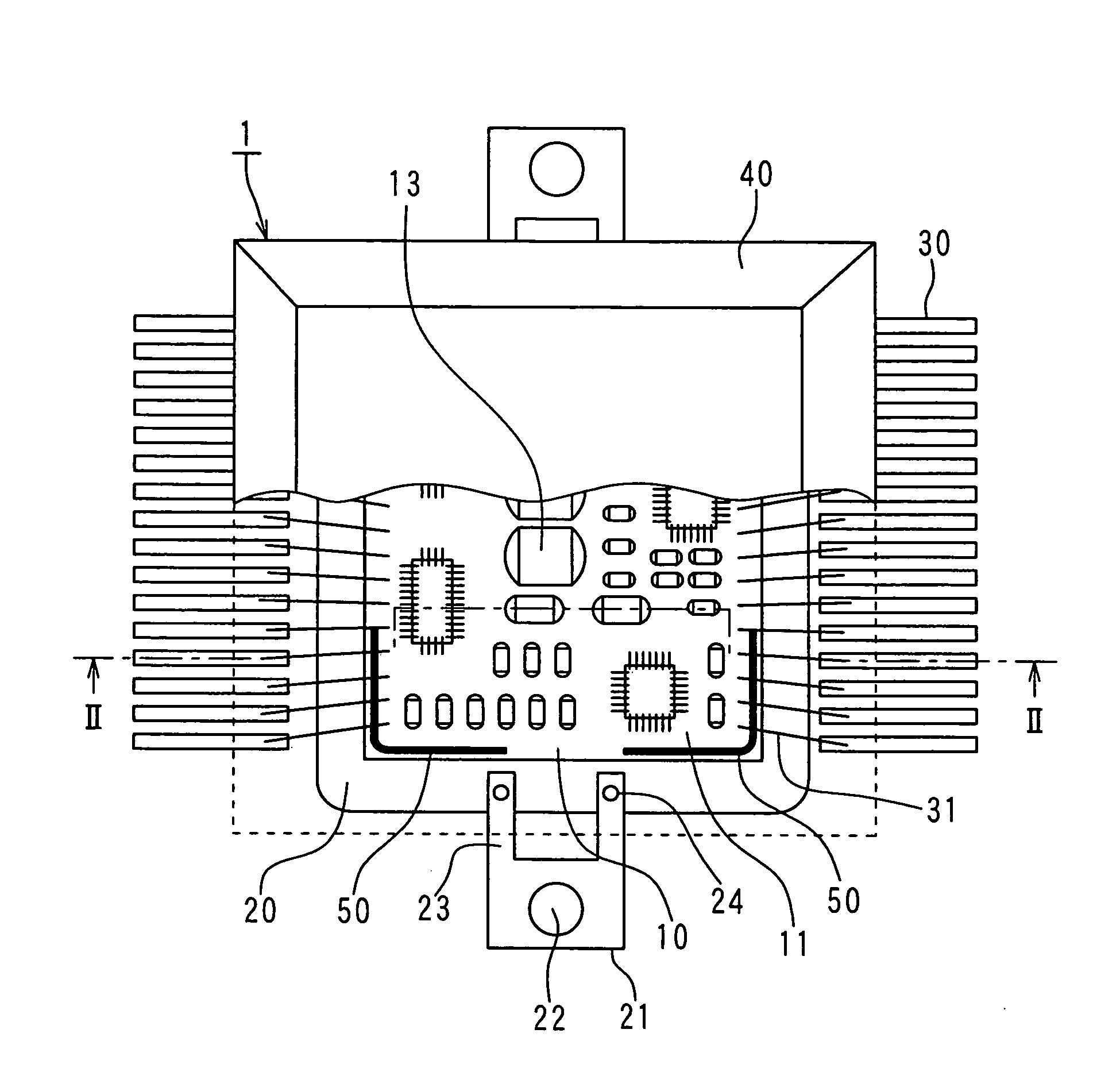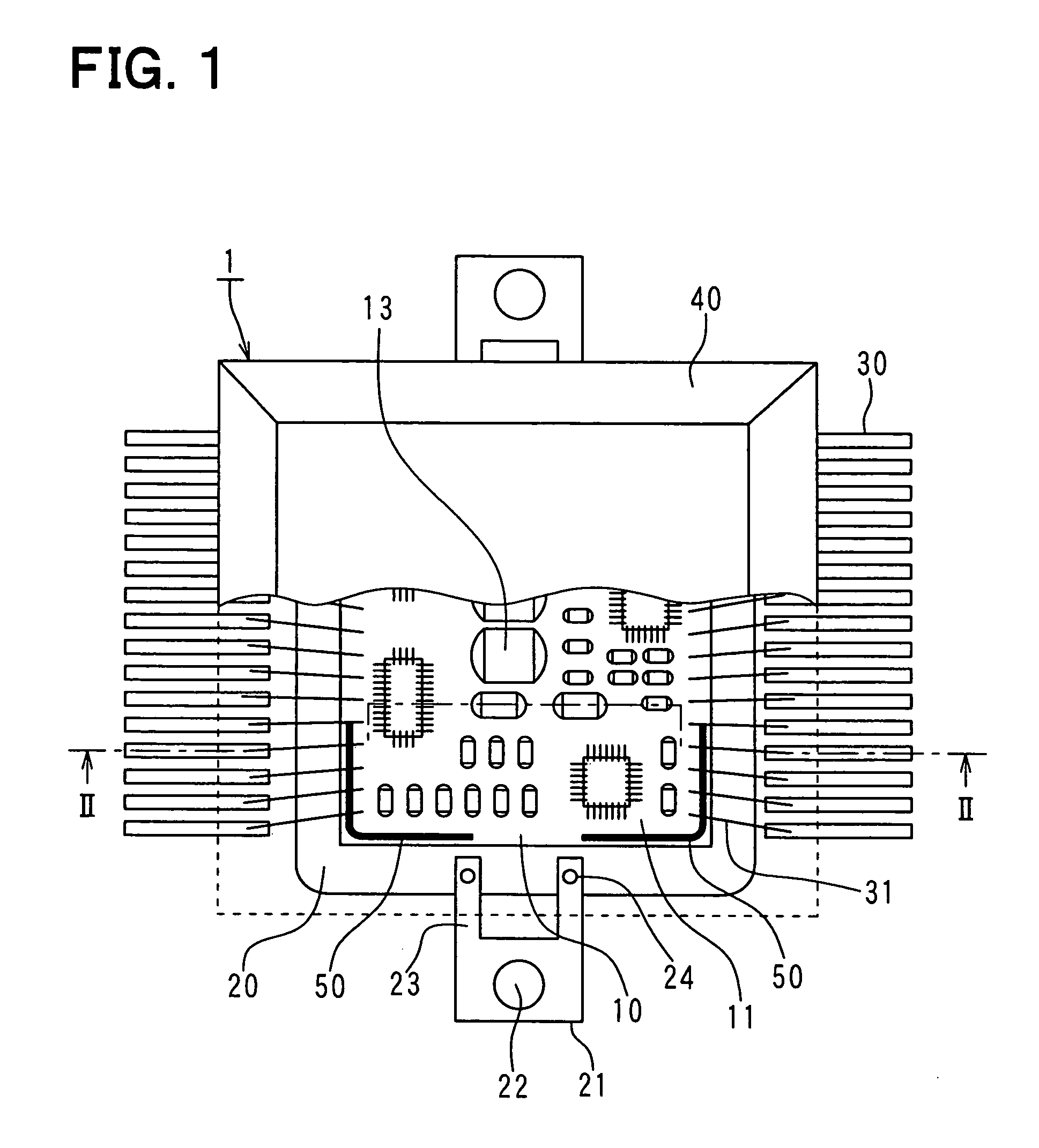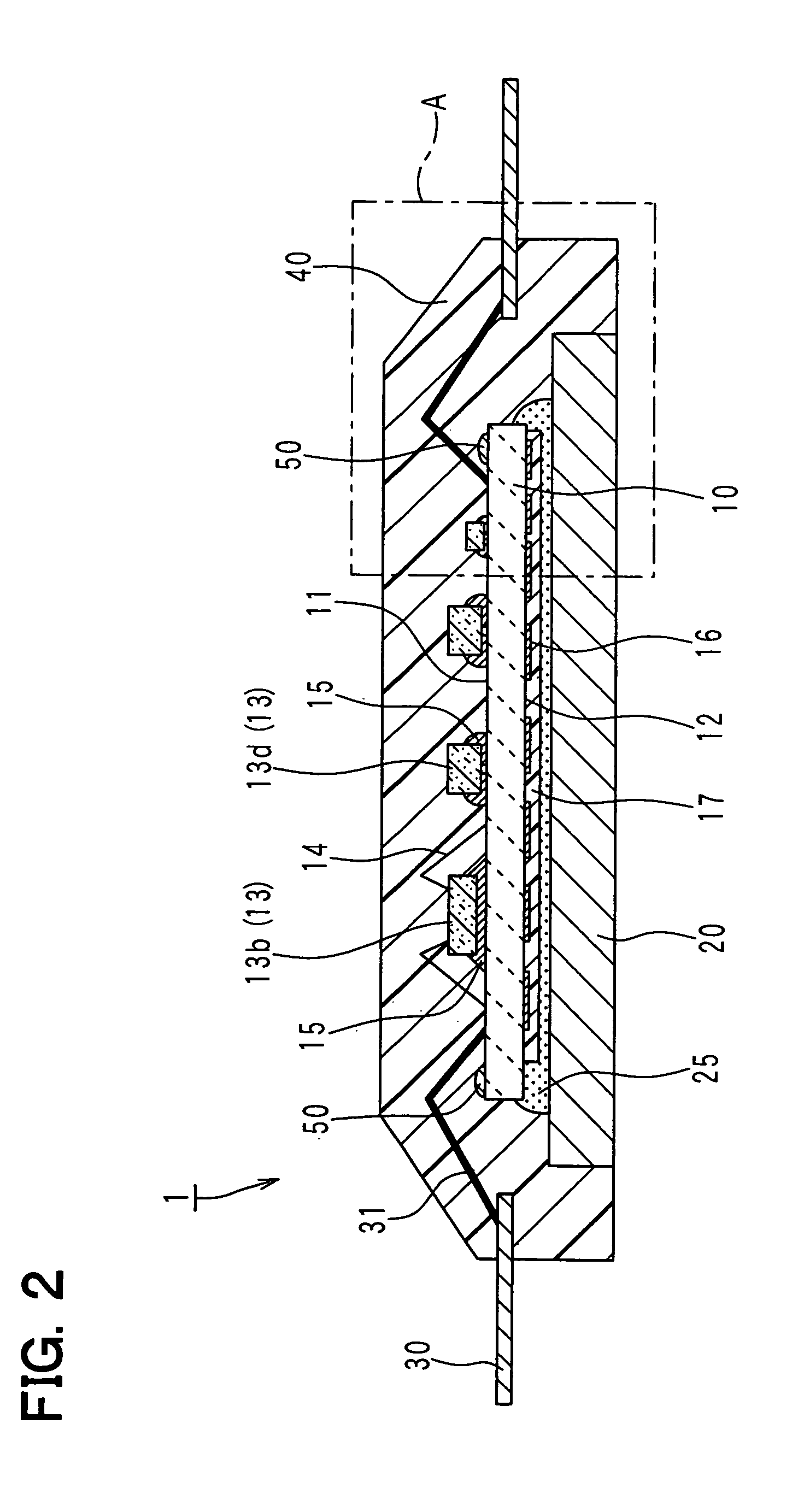Electronic control device
a control device and electronic technology, applied in the direction of electrical apparatus casings/cabinets/drawers, electrical apparatus details, etc., can solve the problems of increasing the number of wiring harnesses, increasing the stress of different amounts, and increasing the difficulty of securing a space for mounting various devices, so as to prevent interfacial peeling, reduce stress, and secure radiation performance
- Summary
- Abstract
- Description
- Claims
- Application Information
AI Technical Summary
Benefits of technology
Problems solved by technology
Method used
Image
Examples
first embodiment
[0047]Hereinafter, a first embodiment of the present invention will be described with reference to FIGS. 1 to 6. An electronic control device according to the present embodiment is used as an in-vehicle electronic control device, for example. Specifically, the electronic control device is used as an electronic control device for an automatic transmission, and is equipped in a valve body arranged inside the automatic transmission as a module integrated with a solenoid, various sensors and the like.
[0048]FIG. 1 is a plan view of the electronic control device according to the present embodiment. FIG. 2 is a cross-sectional view taken along line II-II in FIG. 1. A part of a molding resin 40 is not shown in FIG. 1. A configuration of an electronic control device 1 will be described with reference to FIGS. 1 and 2.
[0049]As shown in FIG. 1, the electronic control device 1 is a molding package having a square-plate shape. As shown in FIGS. 1 and 2, the electronic control device 1 is constru...
second embodiment
[0097]In the present embodiment, only a different part from the first embodiment will be described. FIG. 7 is an enlarged view of a portion of the electronic control device 1 according to the present embodiment, and corresponds to the portion A shown in FIG. 2.
[0098]As shown in FIG. 7, the electrically-conductive adhesive 50 is formed also on a lateral surface 18 of the circuit board 10. Specifically, the electrically-conductive adhesive 50 completely covers a corner portion configured by the first surface 11 and the lateral surface 18 adjacent to the first surface 11, and the electrically-conductive adhesive 50 is coated with the adhesion improving member 60.
[0099]The peeling stress in the molding resin 40 is generated from the outer edge portion 11a including the lateral surface 18 toward the center of the circuit board 10. However, because the corner portion of the circuit board 10 is completely covered by the electrically-conductive adhesive 50 and the adhesion improving member ...
third embodiment
[0100]In the present embodiment, only a different part from the first embodiment will be described. FIG. 8 is an enlarged view of a portion of the electronic control device 1 according to the present embodiment, and corresponds to the portion A shown in FIG. 2. As shown in FIG. 8, the electrically-conductive adhesives 50 are arranged in two rows, and the electrically-conductive adhesives 50 are coated with the adhesion improving member 60.
[0101]In the case where the electrically-conductive adhesives 50 are arranged in multiple rows, the adhesion improving member 60 is more likely to accumulate between the adjacent electrically-conductive adhesives 50. Thus, the adhesion improving member 60 can be thickened, and the effect of reducing the stress can be improved.
[0102]The configuration of the electrically-conductive adhesives 50 is not limited to two rows. As far as a space for the outer edge portion 11a of the first surface 11 is available, the electrically-conductive adhesives 50 ma...
PUM
| Property | Measurement | Unit |
|---|---|---|
| elastic modulus | aaaaa | aaaaa |
| elastic modulus | aaaaa | aaaaa |
| elastic modulus | aaaaa | aaaaa |
Abstract
Description
Claims
Application Information
 Login to View More
Login to View More - R&D
- Intellectual Property
- Life Sciences
- Materials
- Tech Scout
- Unparalleled Data Quality
- Higher Quality Content
- 60% Fewer Hallucinations
Browse by: Latest US Patents, China's latest patents, Technical Efficacy Thesaurus, Application Domain, Technology Topic, Popular Technical Reports.
© 2025 PatSnap. All rights reserved.Legal|Privacy policy|Modern Slavery Act Transparency Statement|Sitemap|About US| Contact US: help@patsnap.com



